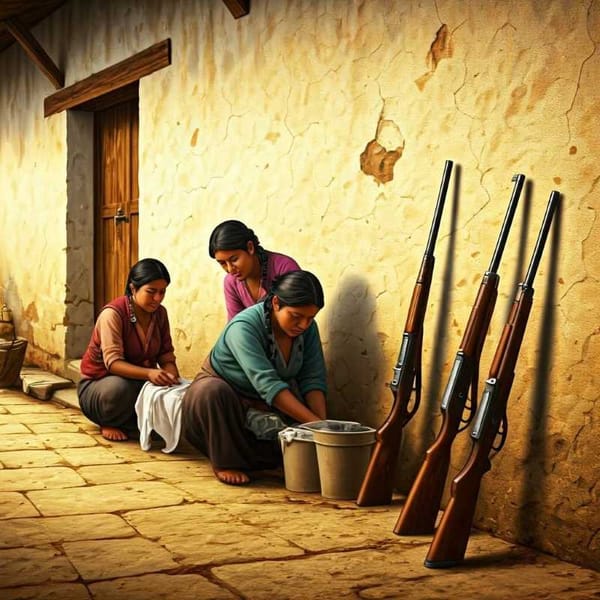A better future will be built on gender equality
Ensuring the participation of women and girls will create a greener, safer and fairer society. If Mexico halved the gender gap in the workforce by 2040, the annual GDP growth rate would add 0.2 percentage points more per year. Inequality is a major problem,.

Participating in the UNAM forum "After 2030: Women Leaders for a Sustainable Future," Michelle Bachelet Jeria, United Nations High Commissioner for Human Rights, said that we cannot face today's challenges if we continue to exclude women from leadership and decision-making. The ideas, voices, and actions -of those who represent 52 percent of the world's population- have proven to be essential to build a better future for people and the planet, added the also former president of Chile, during her keynote lecture, at a distance, in which the rector of UNAM, Enrique Graue Wiechers, participated.
"To get to the world we want after 2030, we must ensure the equal participation of women and girls now, in our effort to recover better and create a greener, safer, fairer, and resilient societies. In other words: a better future will be built on Gender Equality," she said when addressing the theme "Gender Equality for a Better Future." Rector Enrique Graue agreed with her, who previously assured that it is urgent the real inclusion of women in the social, political, economic, and cultural life of our nations because if not, we will not reach a sustainable future.
If Mexico were to halve the gender gap in the workforce -by 2040-, the annual growth rate of gross domestic product (GDP) would grow by an additional 0.2 percentage points per year. "To aspire to a sustainable world and to have a strong economy and a developing country, women's leadership with an inclusive and egalitarian vision becomes indispensable," he said. In this regard, Michelle Bachelet told university students that there are estimates that up to 12 trillion dollars could be added to the world's GDP by 2025 if women's equality were promoted.
Protecting women's lives
The also former executive director of UN Women stressed that we must work to protect their bodily autonomy, based on a dignified life, and therefore urged to eradicate gender violence that one in three women has suffered at some time in her life. During the pandemic, she added, domestic violence and child marriages increased. It is estimated that close to 10 million girls will be victims of this phenomenon in the next decade; 12 million women lost access to contraception, which led to 1.4 million unwanted pregnancies. In addition, COVID-19 was the leading cause of death among pregnant women in Latin America and the Caribbean.
In the same sense, Rector Graue Wiechers stated that if inequality is a major problem, gender violence should outrage us even more, since almost 50 percent of women in Mexico have suffered, during their youth, violence or forms of harassment by their partners or strangers, according to INEGI figures. "If we want to live in a state of well-being and progress, this must change radically," he remarked, accompanied by UNAM's Secretary for Institutional Development, Patricia Dolores Dávila Aranda, and the University Coordinator for Sustainability, Leticia Merino Pérez.
Economy with a gender perspective
In the forum organized by UNAM, Michelle Bachelet also considered it necessary to promote an economy based on fundamental guarantees with a gender perspective. She stated that the presence of women in decision-making positions leads to greater investments in social protection, environment, and climate justice; some studies establish correlations between women in positions of political authority and a lower national carbon footprint. Women and girls are agents of change in the world, but their voices are not always heard and proof of this is that from March to December 2020 they held five thousand 12 demonstrations; in addition, only four countries have a parliament with at least 50 percent of them.
"We need to support feminist leadership and feminist movements, especially in the face of the reduction of women's rights", expressed Bachelet who called to denounce sexist actions, celebrate the success of women in power, encourage young women to dare, and demand States to act in their favor. Among the economic actions to be changed are that 40 percent of nations place restrictions on women to own property; that they are paid 20 percent less than men despite doing equal jobs, and that together with girls they are the majority of the 3.7 billion people who are not connected to the Internet.
The Food and Agriculture Organization of the United Nations states that women develop more sustainable livelihoods and if they had the same access to productive resources as men, they could increase their yields by 20 to 30 percent, which would help reduce hunger in the world from 12 to 17 percent, she said. The former president of Chile urged to increase investment in health, social protection and to recognize the true value of care work, as well as to make a more equitable distribution of care work between men and women.
Meanwhile, Rector Enrique Graue asserted that the construction of gender equality is one of the greatest and most serious contemporary pending issues about fundamental rights. In Mexico, inequality is shown in practically all areas of our society, as 33 percent of young women do not study or work, a figure well above that of OECD member countries. "During these two years of the pandemic, it has been women who have faced -in most cases- the burden at home, in the care of the family, and the education of their daughters and sons." Latin American women have been crucial in the first line of attention to the pandemic, since seven out of every 10 people employed in the health sector are women, and they have done so in an exemplary manner, despite the unfair salary gap, since their income is 24 percent lower than that of men in the same field.
The US will grant Mexico 10 million dollars to improve gender equality
The U.S. Embassy announced this August, that the U.S. Department of Labor will provide up to ten million dollars in funding to support the improvement of gender equality in Mexican workplaces. Administered by the Bureau of International Labor Affairs (ILAB), the grant will fund a project that supports actions to increase the number of women in union leadership positions, strengthen protections, reduce discrimination and harassment in the workplace, and increase women's wages, the embassy said in a statement.
The project will have a worker-centered approach and will involve a variety of stakeholders to advance gender equity. The initiative will also seek to increase women's participation in collective bargaining, and empower labor organizations to take sustained action to promote gender equality in the workplace, the diplomatic office added. "ILAB seeks to strengthen global labor standards, ensure that trading partners meet their labor commitments, promote racial and gender equality, and combat child labor abuses, forced labor, and human trafficking," the U.S. Embassy noted.




